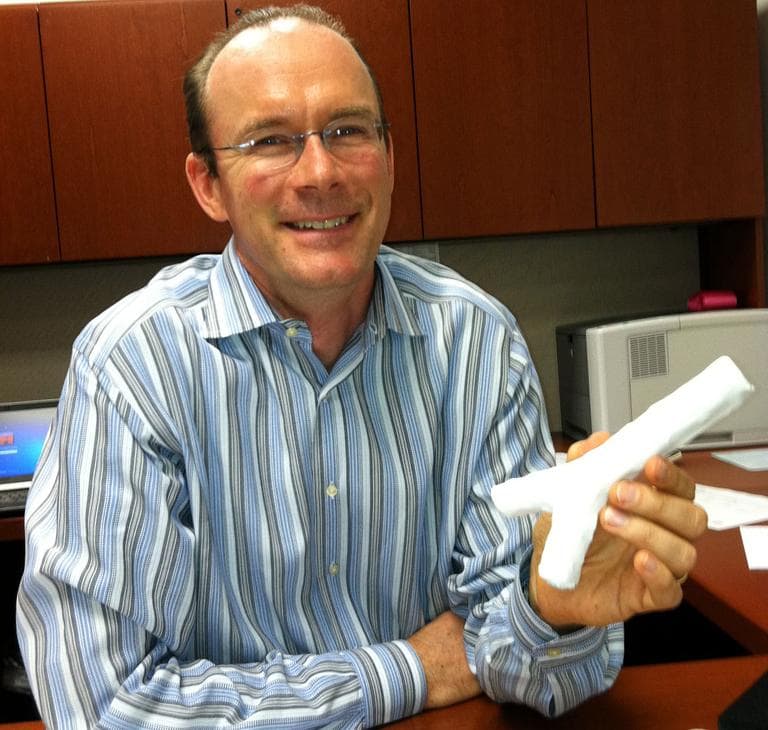Advertisement
Mass. Company Behind World's First Artificial Trachea Transplant
A local company is behind the world's first artificial trachea transplants. Holliston-based Harvard Bioscience helped make the plastic model trachea into an organ, and the company is working on whether this technology can be used with other parts of the body as well.
The latest successful trachea transplant was done on 30-year-old Christopher Lyles, of Maryland. Seven months ago, Lyles was diagnosed with trachea cancer. After conventional treatments didn't work, Lyles and his family learned that the world's first synthetic trachea transplant had just been done by Dr. Paolo Macchiarini in Sweden.

"We did as much research as we could find and my brother-in-law found Dr. Macchiarini did a tracheal transplant," Lyles said. "My brother-in-law contacted him and literally the next morning Dr. Macchiarini was contacting him back saying, 'I can help your brother-in-law.' "
Tracheal cancer is usually fatal. Of the 1,800 people in the United States diagnosed with it each year, only about 5 percent survive. So Lyles felt he didn't have much to lose, and two months ago he underwent the surgery in Sweden. He's still there recuperating, but is scheduled to return to his home in Maryland next week.
"I feel good. I get tired from time to time and I need to get my rest but other than that, for the type of surgery I've been through — a tracheal transplant — I feel good," Lyles said laughing.
The surgery itself sounds like science fiction. The implanted trachea started with what looks like a white plastic, six-inch-long Y-shaped tube. It's a model of the patient's trachea made of spongy, porous, layered or scaffolded material. David Green, president of Harvard Bioscience, says the model is made from PET, the same material in two-liter Coke bottles. Harvard Bioscicence doesn't make this synthetic trachea, it makes what's known as a bioreactor. That's the machine that seeds the model trachea with a patients stem cells.
"What happened is the scaffold was seeded with bone marrow stem cells taken from the patient," Green explained. "This scaffold is then placed in the bioreactor — that's we make — which keeps it sterile and at body temperature so the cells can grow in the pores and the nanofibers. So by the time it's transplanted it really is a piece of tissue and a few days after the transplant it really is an organ."
Advertisement
Green says because the patient's own stem cells are used, there are no anti-rejection drugs required and no long wait for a donor.
It's a big development for a small life sciences company. Harvard Bioscience employs about 90 people in Massachusetts in a large building in an industrial park in a wooded area of Holliston. The company is expanding from being a primary manufacturer of life sciences research equipment to working on FDA approval for more advances in regenerative medicine.
"The trachea is just a tube," Green said. "A lung is much more complex. A heart, a liver is much more complicated. But there are lots of researchers working on developing this regeneration technology for these larger organs."
Because this technology is not yet FDA approved, the transplants are now being done in Sweden. And they're expensive. Lyles and his family are working with a nonprofit to raise the $450,000 needed — just for the hospital. But of course he feels it's worth it.
"I feel that God has blessed me and afforded me the opportunity to embark on this ambitious surgery because I know it is. It's new, there's no data. It's just a hope," Lyles said. "I have a 4-year-old daughter I need to be around for, and this is the reason why I'm doing it."
And there are already more synthetic trachea transplants scheduled this year.
This program aired on January 6, 2012.
